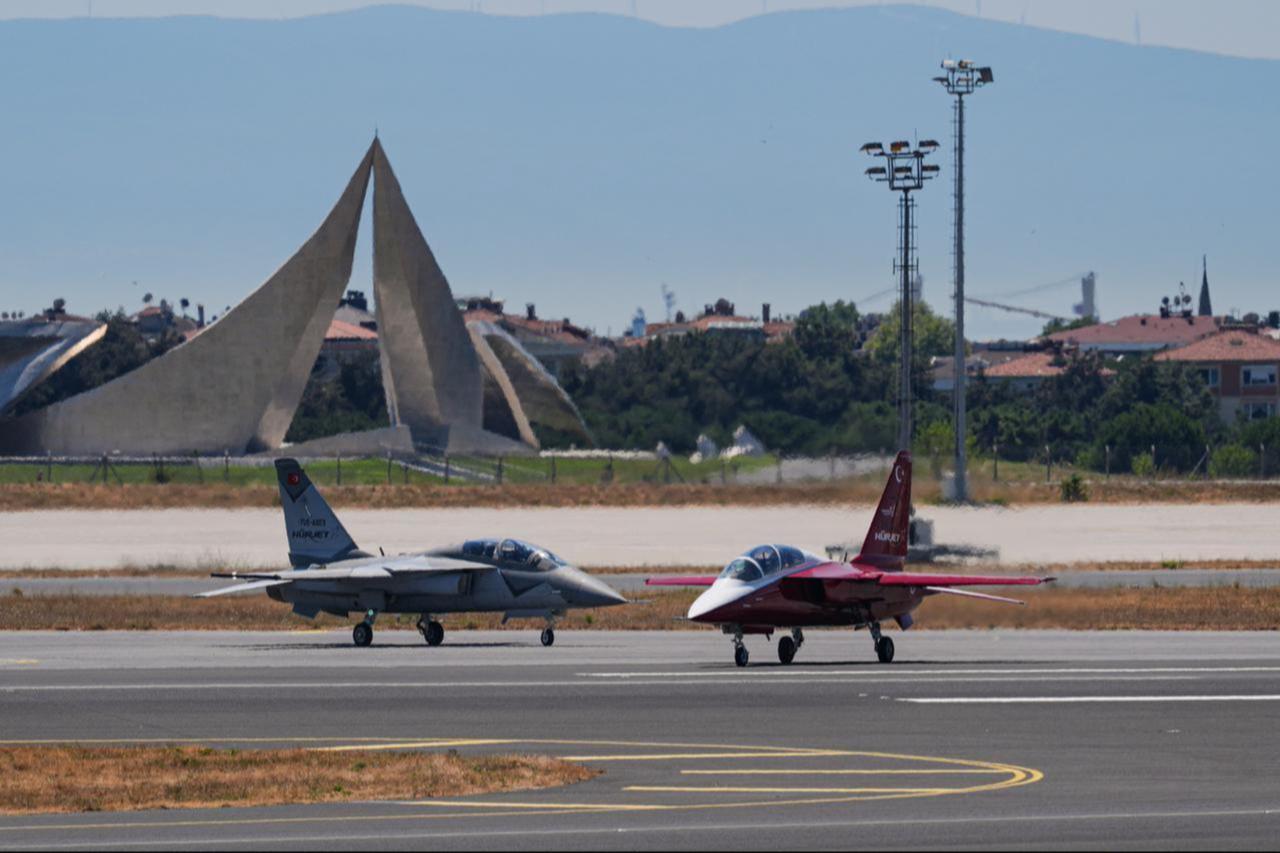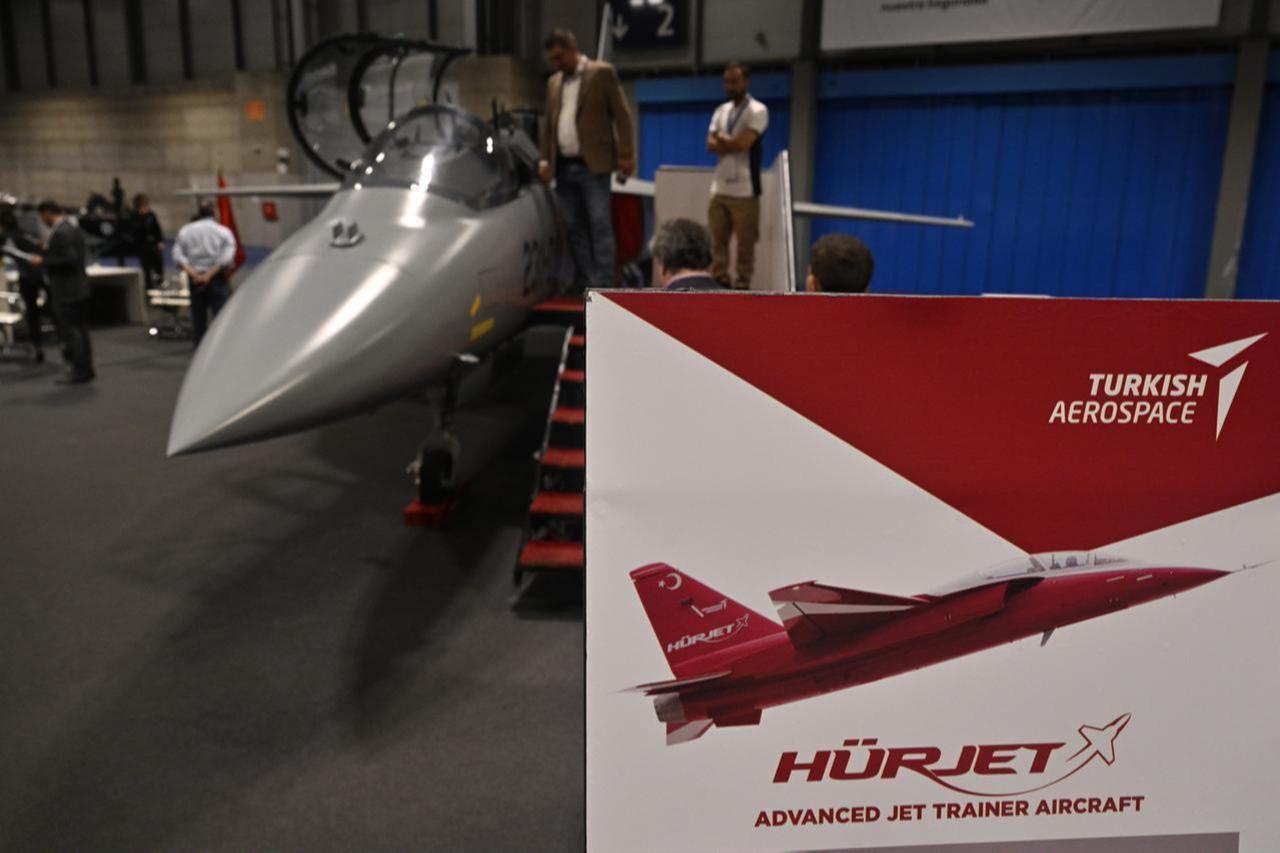
Türkiye is pressing ahead with testing, mass production and planned exports of its first domestically developed advanced jet trainer, the Hurjet, after two prototypes completed about 340 flights and 260 flight hours, Turkish defense officials said.
Developed by Turkish Aerospace Industries (TAI), the Hurjet is scheduled for delivery to the Turkish Air Force’s aerobatic team, Turkish Stars, in 2026. Assembly work for the aircraft is underway, and the newly produced jet is expected to conduct its first flight in the first quarter of next year.
The project began in August 2017, and the aircraft made its maiden flight in April 2023. Prior to that, the first completed component entered final assembly in June 2022, followed by a series of ground tests including landing gear trials, wiring checks, canopy mechanism assessments and full avionics, electrical and fuel system evaluations.

Türkiye’s first jet-powered supersonic training aircraft completed its initial engine start-up on Jan. 30, 2023, before flying for the first time on April 25, 2023. Testing has continued within its designed performance envelope.
During testing, two Hurjets flew in formation using different camouflage schemes, while another participated in a demonstration flight with the Turkish Stars aerobatic team, performances that drew significant attention.
TAI is building a production line capable of assembling two aircraft per month. The Turkish Air Force is expected to initially receive 16 aircraft, with the total number likely to increase as new configurations are introduced.
The single-engine aircraft is designed for modern fighter pilot training, armed and unarmed air patrol, and aerobatic missions. The Hurjet is 13.6 meters long, 4.1 meters high and has a wingspan of 9.5 meters. It can reach speeds up to Mach 1.4 and fly at altitudes up to 45,000 feet. The jet features seven external stations for various payloads, with a total carrying capacity of three tons.
TAI is preparing to sign an export agreement with Spain for the Hurjet, with a final supply contract expected soon, CEO Mehmet Demiroglu told Spanish outlet El Espanol.
Demiroglu said the aircraft is primarily designed as a jet trainer but can be adapted quickly for alternative missions or delivered in variant configurations based on customer requirements. Details on variants and delivery schedules will be determined once the contract is signed.
The deal envisions the purchase of approximately 45 Hurjet aircraft to replace Spain’s aging F-5 fleet, with an estimated value of €3.12 billion ($3.6 billion). Deliveries are scheduled to begin in 2028.